Medically review by Kim Langdon

Sleep doesn't need to be complicated. For some of us, though, it really is! What helps you sleep?
There are many facets of a great slumber, but here are the top 7 tips you absolutely need.
Sleep is the cornerstone of good health. Fatigue causes disruption to hormones, irritability, lack of physical energy, weaker motor skills and an inability to focus.
If we're well-rested, a lot of the other aspects of what makes us healthy fall into place including a moderate, healthy diet and exercise.
Where do we begin to troubleshoot?
Consider this your basic guide to taking your sleep from good or bad to great. Here, we can address what causes insomnia, how to get to sleep fast, and ideas for holistic sleep aids.
1. Keep a consistent bedtime and wakeup time
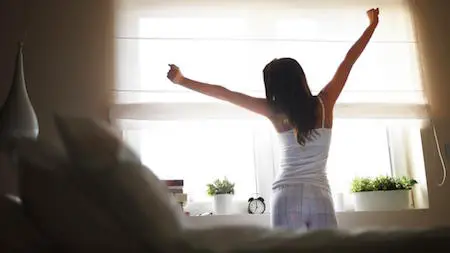
Keeping a consistent bedtime and wakeup time is very important.
Just like with diet and exercise, the weekend often puts us in a vulnerable spot! While you may have time to sleep in if you don't have to work on the weekends, we're here to remind you that good sleep relies a ton on consistency.
This means keeping your schedule pretty firm throughout the week and weekends.
Why? In short, circadian rhythm. This is a natural, biological function that runs on a 24-hour cycle. Without going into detail, the word 'rhythm' implies keeping with the beat. Your body wants this.
Ideally, that means we begin to tire when the sun falls, and we begin to feel energized when the sun rises.
Keeping a regular sleep schedule helps to reinforce a regular rhythm.
2. Practice a bedtime ritual
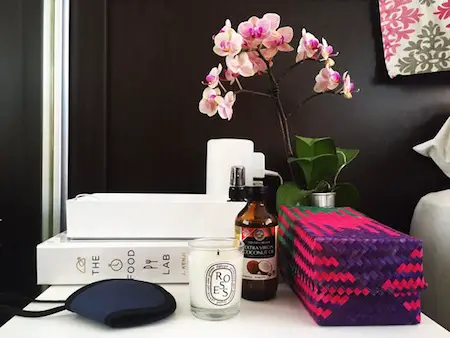
Rituals play into our habits, and vice versa. Our pre-existing habits often determine new habits or our ability to build upon them.
The idea of a ritual is that it sets us up for what comes next, or what we're focusing on right now. It's something that gives us consistency and also creates a positive mindset.
The pre-bedtime ritual is important because if we don't have that, our body has no cue besides actual, physical/mental fatigue to tell us to go to bed!
The lead-up to bedtime should be relaxing and help to put us in a good space to hit the sack and get good rest.
Your bedtime ritual should leave out the television, computer, and phone in favor of relaxing essential oils, a bath, foam rolling, gentle yoga or a book.
Your bedtime ritual should incorporate basic hygiene (i.e. washing your face and brushing your teeth), organization, and preparing your room for a good night's rest by making sure the light and sound stay out!
You can also try coloring, meditation, or journaling. Read more about our favorite bedtime rituals.
3. Avoid napping

Sometimes, it's all too tempting. Perhaps, you doze off without even meaning to.
Even worse?
Maybe you're one of those people whose innocent, 15-minute catnap turns into a 3-hour afternoon snooze sesh.
Speaking of timing, you should avoid napping in the afternoon, in particular.
You've likely pushed it a little far in the past and found yourself tossing and turning later at night.
Naturally, this interrupts our circadian rhythm and gives us a bit too much energy to get to bed at our scheduled time later.
If you're going to nap, set some strict limits - sometimes, ten or fifteen minutes is enough to keep you "fueled."
The earlier you nap, the better.
4. Exercise daily
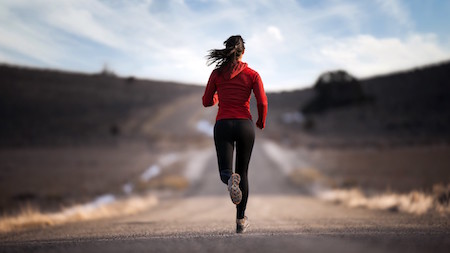
Here's a theory: if you've done nothing but stay at rest all day, your body isn't going to want to rest when it's finally time for bed. It's going to feel cooped up!
Our bodies need movement, and our sleep is indicative of this. First, exercise can help solidify your circadian rhythm; doubling up on exercise and sunshine is even better if you opt to get moving outside.
Exercise early in the morning or afternoon reinforces the sleep/wake cycle which has a lot to do with body temperature - you want it to rise as you wake and fall as you get ready for bed.
Contrary to popular belief, nighttime exercise isn't always detrimental to sleep. Still, it pays to be mindful in case working out at night energizes you too much to fall asleep easily.
5. Get at least 20 minutes of sunshine

Like exercise, sunshine and the subsequent absorption of vitamin D both help normalize the circadian rhythm.
This is especially important if, for example, you work in an environment without windows and spend most of the day entirely shut out from natural light.
People who get natural sunlight each day don't just sleep longer hours; they are also happier and more physically active which can increase sleep quality further.
To optimize the sleep benefits of sunshine, try to get your dose in the early morning. If you can swing it, sunshine should be a priority out of bed.
An alternative to those with few options to get natural light during the day is a good light box that can mimic the impact of UV rays.
Alex's recommendation: I personally use a small 10,000 LUX full spectrum lightbox, which is portable for travel and easily charged. It makes a huge difference during the day.
I tend to use it as soon as I wake up in the morning which is especially a priority when winter sets in, and I'm up before the sun is. Learn more about bedtime products the HBF team loves.
6. Avoid bright screens 1-2 hours before bed
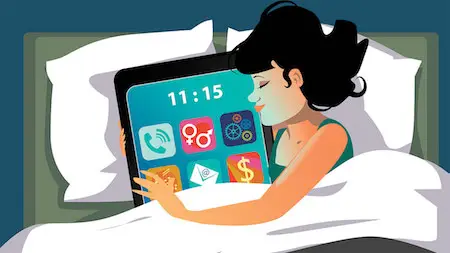
Bright screens are sending signals to the brain to stay awake.
Accompany that with notification noises, vibrations and a steady stream of everything from baby photos to politics, you've got no time to really wind down.
If this is a part of your bedtime ritual, it's time to make some changes. Not only does it keep us tapped in; bright screens actually prevent the production of melatonin!
Melatonin is what signals to your body that it's tired, so if we don't get it, we become restless. Production of melatonin is influenced by the duration of exposure and brightness of light.
Try to cut out all bright screens 1-2 hours before bed. Otherwise, dim down the brightness of the screen, or switch over to night browser (black screen with white text).
Check out our tips on going tech-light which can help more than sleep.
Alex's recommendation: Try amber-colored goggles which will block out some of the "blue" light. Pretty stylish, right?
7. Write it out

It seems as though right before we're ready to doze off, our brains are saying, "NOPE!"
Okay, brain! All of a sudden, everything you forgot to do today and everything you have to do tomorrow need to be done right now.
It's very common to become overwhelmed with worries and anxiety before bed as we try to collect our thoughts and get organized for the day ahead.
Instead of letting it get the best of you, journal it out!
Write down what you're worried about. Visualize what you need to do.
Focus on the positive aspects of the day, and take a moment to jot down a few things you're feeling extra thankful for to put your mind at ease - where it should be before your nightly slumber.
Alex's recommendation: Check out our feature on bullet journaling. This new trend is something worth getting on the bandwagon with if you've got a little too much flying around in your brain!
I use mine throughout the day to cross things off my to-do list, take notes, and keep organized.
It's especially helpful at night for me to reflect on gratitude, planning for the next day and focusing on the positive.
Interested in making all these recommendations reality and discover the Magic of Sleep?
Our free 7-Day Sleep Better Challenge is designed to help you make healthy sleep habits strong. It could change your life!
Are you ready to wake up feeling good? Join the free challenge and get the best sleep of your life.
This article was fact checked for accuracy by Dr. Kim Langdon, MD. As always, this is not personal medical advice and we recommend that you talk with your doctor.
Share on Pinterest
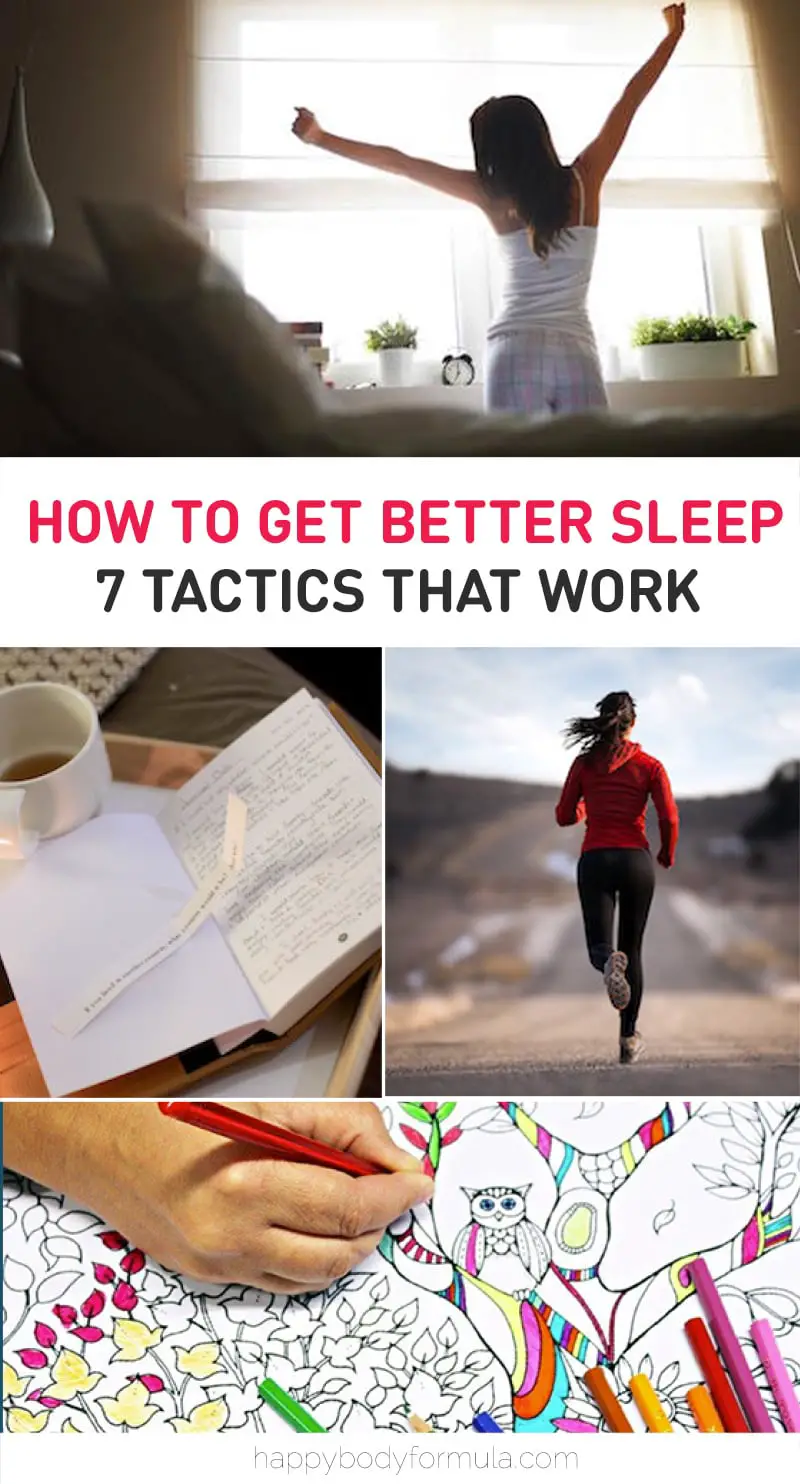
References
Kimberly Langdon M.D. is a retired University-trained obstetrician/gynecologist with 19-years of clinical experience. She delivered over 2000 babies to mothers in a suburban Midwestern community.

